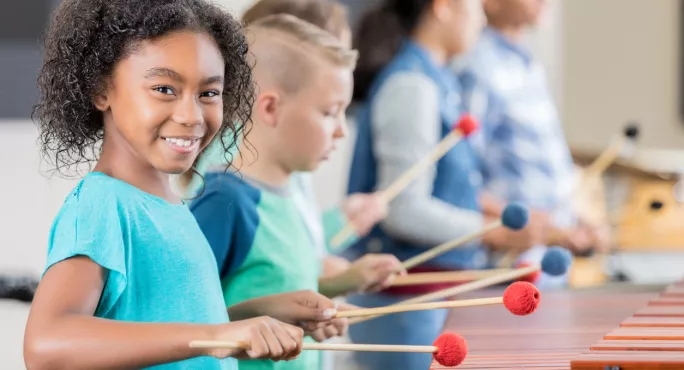- Home
- Views needed on SEND and tech for new DfE music plan
Views needed on SEND and tech for new DfE music plan

A revised national plan for music education will be published this autumn, following a discussion involving teachers, musicians, parents and pupils, the government has announced.
The updated document will build on the current plan for music education, published in 2011, and aim to “level up opportunities for children from all backgrounds”, according to the Department for Education.
The government is today launching a “call for evidence”, for which specialist teachers, musicians, young people and their parents will be asked to share their experiences of music education, and suggest any changes they would like to see in the refreshed plan.
Related: DfE ‘dropped the ball’ on plan for music, says adviser
Exclusive: DfE music curriculum delayed over ‘quality’
Survey: Creativity ‘undervalued’ in music education
Respondents will be asked specific questions on key issues, including SEND and inclusivity, music technology, and music education hubs. The feedback will help inform changes to the plan.
The updated document will then go out for public consultation before it is published in autumn 2020.
The DfE said it could not confirm whether the plan will be implemented immediately, or in the following academic year, as “until we know what changes we need to make we won’t have an [implementation] timescale”.
Bridget Whyte, chief executive of Music Mark, said she was “delighted” that the plan was moving forward.
“I’m just really, really pleased that we’re finally getting some news about this,” she said.
“For me, the key things are to reflect on [the fact that] music education doesn’t start at 5. And now that the Department for Education covers 0-25 in its age range, perhaps the plans should too.
“I would also say that I would hope that they don’t throw the baby out of the bathwater in terms of the current national plan. Actually, when you go back and read it, so much of it is excellent.
“I would say review the age range, make sure that schools are at the heart of it, and don’t change for change’s sake, when so much of what was written in the original plan is good.”
The sector is also waiting for news on the government’s separate model music curriculum, which was supposed to be published last summer.
The DfE has said the model framework, designed to be complementary to the national curriculum, should ensure all pupils can benefit from knowledge-rich and diverse lessons and provide schools with a “sequenced and structured template curriculum”.
But the plans have been described as “deeply concerning” by dozens of experts in music education, who are worried that the DfE expert panel leading the project does not include people with sufficient knowledge of teaching music in schools.
Asked when the new model music curriculum would be published, a spokesperson for the DfE the team had no further updates on the project.
The department previously said that publication of the framework had been delayed to ensure it “meets the required quality” and “to collect more evidence”.
Ms Whyte, who is a member of the expert panel overseeing the development of the new curriculum, said: “We are awaiting an update from the Department for Education on that, as the expert panel. And we’ve had nothing.
“I think there are various things that have conspired against them - not least purdah, and the election, and getting their ducks back in a row. So we await news.
“I think we will still see a model music curriculum, but when is anybody’s guess.”
Schools minister Nick Gibb said: “All children, regardless of their background, should get the opportunity to play musical instruments, learn to sing and learn how to read and write music in the classroom.
“I want to continue to level up opportunities so all young people can get the best out of their music education. We can only achieve this if we reflect on the latest advances in music and work together with experts in the music industry, specialist teachers, as well as reflecting on young people’s experiences.”
Keep reading for just £1 per month
You've reached your limit of free articles this month. Subscribe for £1 per month for three months and get:
- Unlimited access to all Tes magazine content
- Exclusive subscriber-only stories
- Award-winning email newsletters



